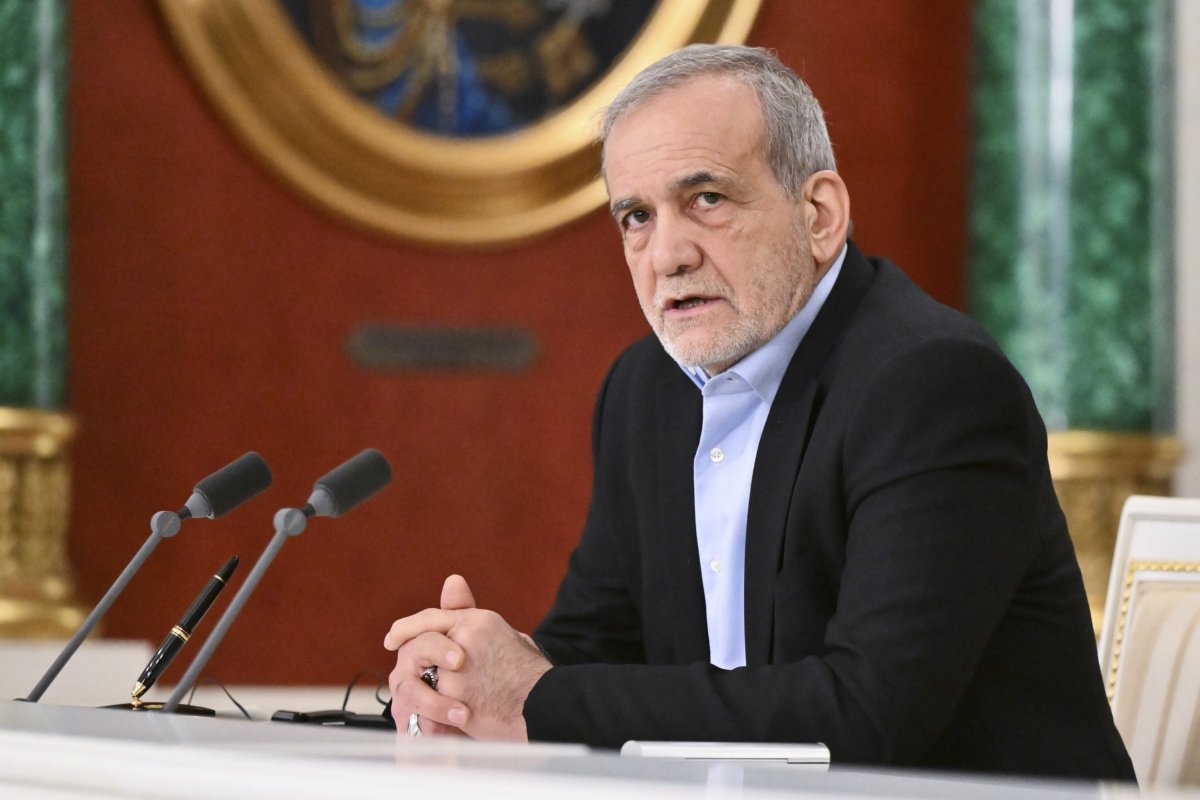Iranian President Masoud Pezeshkian has signaled a shift in tone ahead of nuclear talks with Washington, inviting U.S. investment into Iran and reiterating that Tehran is not pursuing nuclear weapons.
In a speech on Wednesday, Pezeshkian said Iran’s Supreme Leader Ayatollah Ali Khamenei “has no opposition to American investors.”
Newsweek has reached out to the State Department and Iran’s presidential office for comment.
Why It Matters
The Iranian president’s remarks frame the upcoming U.S.-Iran talks in Oman as an opportunity for mutual economic gain and diplomatic progress. His comments are the clearest indication yet that Tehran is open to a broader economic and political understanding with Washington.
By offering a business incentive Pezeshkian may be seeking to appeal to President Donald Trump‘s emphasis on deal-making while also signaling a pragmatic shift in Iran’s foreign policy.

Kristina Kormilitsyna/AP Photo
What To Know
President Pezeshkian reiterated Iran’s position on nuclear weapons ahead of Saturday’s talks, declaring, “We are not after a nuclear bomb. You (in the West) have verified it 100 times. Do it 1,000 times again.” Pezeshkian also made a bold appeal, suggesting Iran would welcome American investment if a deal is reached. Some observers see his comments as a calculated appeal to President Trump’s business instincts.
“Iran’s leadership understands that Trump will want to boast that his deal with Iran will boost the American economy and American companies,” says Esfandyar Batmanghelidj, CEO of the Bourse & Bazaar Foundation, an economic think tank that tracks Iran. “They are looking at recent moves by the U.S. administration, such as the critical minerals deal pushed on Ukraine, and recognizing that Trump wants a business deal, not a nuclear deal. In fact, one of Trump’s criticisms of the nuclear deal was that it primarily benefited European companies while American firms were left on the sidelines.” he added.
Economic Strain
Iran’s economy has been heavily strained by international sanctions, particularly after President Trump unilaterally withdrew from the 2015 nuclear deal in 2018 and launched a “maximum pressure” campaign against Tehran. The agreement had required Iran to drastically reduce its uranium enrichment and stockpile levels in return for sanctions relief, which helped stabilize its economy before the U.S. exit reversed those gains.
Since then, Iran has faced soaring inflation, rising unemployment, and a collapsing currency, with the rial hitting record lows against the dollar amid continued economic isolation.

Vahid Salemi/AP Photo
What People Are Saying
Iran President Masoud Pezeshkian said: “I meet the supreme leader several times each week. He has no opposition to American investors in the country. Let them come and invest – but we oppose plotting, regime change efforts, and destructive policies. Iran is not a place for conspiracies or espionage followed by assassinations. Investors are welcome to invest in our country.”
Esfandyar Batmanghelidj, CEO of the Bourse & Bazaar Foundation, told Newsweek: “In reality, it will be difficult to convince risk-averse American companies to trade with Iran, let alone to invest. But there are ways for the U.S. and Iran to structure their economic cooperation to build trust in the agreement and to boost trade or investment. American investors could hypothetically gain exposure to Iran through investment funds in the Gulf, vehicles that Trump and his circle are very familiar with.”
What Happens Next
Many are looking to the Saturday, April 12 talks in Oman, which are expected to be a pivotal moment in U.S.-Iran relations.





